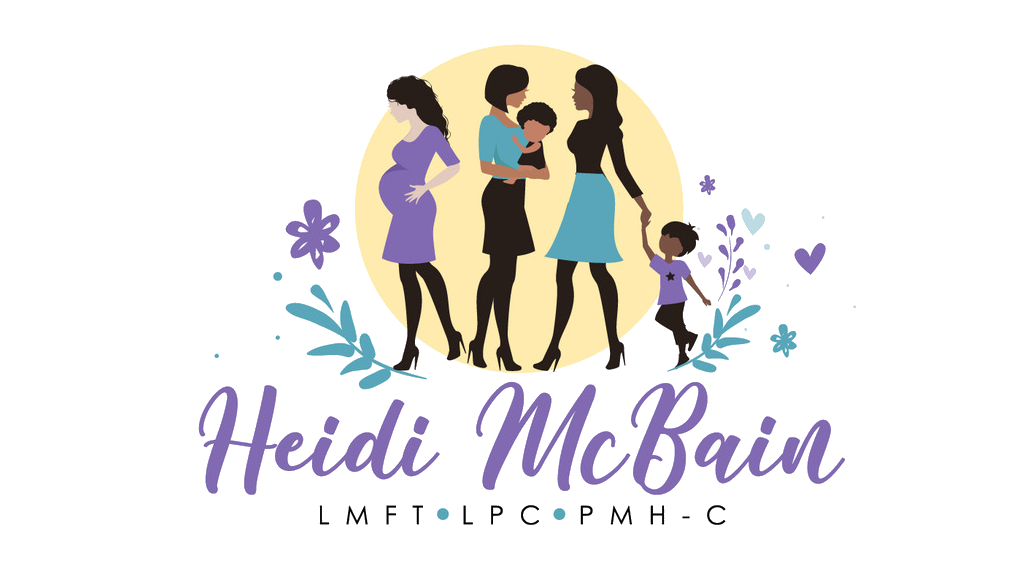

As a therapist who specializes in postpartum depression and postpartum anxiety in Flower Mound, Texas, I get asked a lot of interesting questions: Why is this happening to me? When will I start feeling better? When will I start to feel like myself again? I also hear a lot of interesting statements: This wasn’t at all what I was expecting! No one told me this would be so hard! I thought motherhood would come naturally to me!
The statistics from Postpartum Support International are showing that of the women who are diagnosed with postpartum depression/anxiety (postpartum anxiety and depression are often found together in the postpartum period), about 1/3 of women have anxiety and/or depressive symptoms before they get pregnant, 1/3 start showing symptoms during pregnancy, and 1/3 start showing symptoms after the arrival of their baby. That’s women at every stage of the birth cycle, which means, we all need to be on the look out for the symptoms of depression and anxiety before pregnancy, during pregnancy, and after baby’s arrival.
Some symptoms of depression include: sleep changes (more or less than usual), loss of interest in things you usually enjoy doing, feelings of guilt, decreased energy, loss of concentration, increase/ decrease of appetite, restlessness/agitation, and suicidal thoughts. (Depression: Why It Can Be so Hard to Spot Postpartum Depression and How We Can Better Help New Moms Who Are Suffering)
Some symptoms of anxiety include feeling worried about the future, having too many constant thoughts running through your head (that you would like to shut off but cannot seem to stop), and feeling like you are being overwhelmed by stress (so much so that at times it may feel hard to breathe). (Postpartum: How a New Type of Therapy can Make Getting Help More Accessible to New Moms)
According to Postpartum Support International, 1 in 7 moms experience postpartum depression and 1 in 5 suffer from some type of postpartum mental health disorder, including anxiety, which means that these disorders are very common. It also means that some moms fall at the very mild side of the scale and would often be appropriate for a little extra support via counseling. Other moms fall in the middle and sometimes need medication combined with counseling. The most severe cases sometimes even require hospitalization.
Today, I want to talk about the less severe types of mental health diagnosis called adjustment disorders, which basically mean that someone is going through a change in their life and they are having some trouble adjusting to that change. An adjustment disorder can also have depression and/or anxiety features as well. It typically takes most people around six months to fully adjust to a major life change. The caveat here is that it doesn’t matter if it’s a change that’s generally seen as positive such as getting married, having a baby, starting a new job, etc. versus a change that’s generally seen as negative such as a breakup, the loss of a loved one, moving, etc. The point here is that any pending life change can bring with it difficult feelings and emotions, such as worry or fear or sadness or guilt, to name a few.
How can therapy help you?
- Therapy is a safe place to talk about what ever is on your mind, from a recent argument with your husband to fears about what type of mom you’ll be to your children.
- In today’s busy world, therapy and taking time for yourself each and every week can be an important part of your self-care; self-care which hopefully also includes daily activities such as meditation, mindfulness/focusing on your five senses, journaling, reading, exercise, etc.
- Therapy can help you become more aware of your familial patterns, be it the ones from the family you grew up in or the family you’re creating with your spouse. When you’re aware of these patterns, you can work on setting and maintaining clear boundaries with others, which can help break unhealthy familial patterns/cycles of interaction (Boundaries: How to Use Your Intuition to Help You Set and Maintain Good Boundaries with Others)
- Therapy can be a great support system for you, but it can also be a great place to learn new, healthier coping strategies for your depression and/or anxiety. It can also be a place to talk about some of your negative thinking patterns and learn ways to break the negativity that often goes hand-in-hand with anxiety and depression.apply nowhttps://www.wof-entertainment.de/kontakt/fake watches on amazonelfbar vapephone case brands
- Therapy is a great place to talk about your expectations for the future, especially as a new mom or a mom to more kids. What happens if these expectations do not become a reality for you? Therapy is also a safe place to work through some of the control issues that often show up around our expectations, and work on how to be more present and grounded, right here, right now.
- Therapy can help you work through perfectionistic tendencies, so you can enjoy your new baby without the added stress of trying to be the perfect mom (as there’s really no such thing). Since we’re all really just doing the best we can with the tools we’re been given in life. (Forgiveness: How to Let Go of Perfectionism and Embrace the Messiness of Motherhood)
One of the great tools here is to seek help from a professional therapist early on, when you’re first starting this adjustment to new motherhood phase. Start when this major life transition really sinks in for you, be it when you’re first trying to conceive, when you’re pregnant, or even when you see your baby for the first time.
